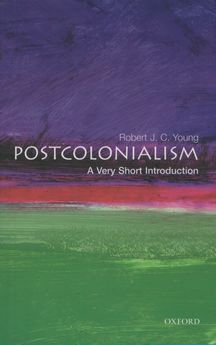This innovative and lively book is quite unlike any other introduction to postcolonialism. Robert Young examines the political, social, and cultural after-effects of decolonization by presenting situations, experiences, and testimony rather than going through the theory at an abstract level. He situates the debate in a wide cultural context, discussing its importance as an historical condition, with examples such as the status of aboriginal people, of those dispossessed from their land, Algerian raï music, postcolonial feminism, and global social and ecological movements. Above all, Young argues, postcolonialism offers a political philosophy of activism that
contests the current situation of global inequality, and so in a new way continues the anti-colonial struggles of the past.
ABOUT THE SERIES: The Very Short Introductions series from Oxford University Press contains hundreds of titles in almost every subject area. These pocket-sized books are the perfect way to get ahead in a new subject quickly. Our expert authors combine facts, analysis, perspective, new ideas, and enthusiasm to make interesting and challenging topics highly readable.
Features
- Explores globalization, the Internet, mass media, and human rights activism
- Robert J. C. Young is 'one of the leading figures in postcolonial studies and a pioneer in the work of introducing and popularizing it for a larger audience.' (Professor Bruce Robbins, Rutgers University)
- 'a politically and intellectually engaging introduction to the formation of postcolonialism . Historically sound and intellectually inspiring.' (Professor Elleke Boehmer, Trent University)
- Cites the work of such theorists as Edward Said, Frantz Fanon, and Gayatri Spivak
- Key areas considered include: the status of aboriginal people, the innovative fiction of Garcia Marquez and Salman Rushdie, and the postcolonial cities of London, Bombay, and Cairo
General readers and students interested in modern history, students and lecturers of cultural studies and literary theory.
